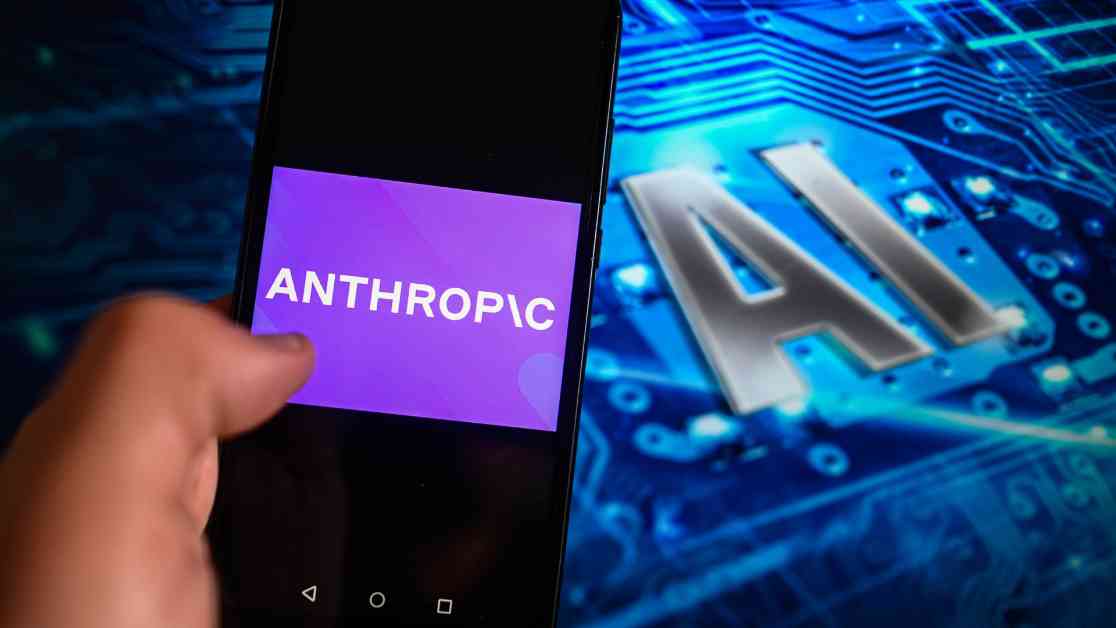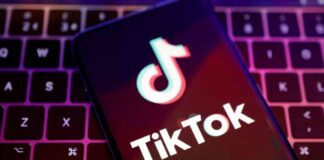Anthropic, the Amazon-backed artificial intelligence startup, is facing a class-action lawsuit in California federal court for alleged copyright infringement. The lawsuit, filed by authors Andrea Bartz, Charles Graeber, and Kirk Wallace Johnson, accuses Anthropic of stealing hundreds of thousands of copyrighted books to build its multibillion-dollar business. The authors claim that Anthropic downloaded pirated versions of their works, made copies of them, and fed them into its AI models, including the flagship ‘Claude’ family of large language models.
The lawsuit against Anthropic comes on the heels of the company’s recent launch of its most powerful AI model, Claude 3.5 Sonnet. Claude, a chatbot similar to OpenAI’s ChatGPT and Google’s Gemini, has gained popularity in the past year. However, the authors allege that Anthropic’s business model relies on the unlawful use of copyrighted works, which violates copyright laws.
This is not the first time Anthropic has been accused of copyright infringement. Last October, Universal Music filed a lawsuit against the startup, claiming that Anthropic systematically infringed on copyrighted song lyrics. Other music publishers, such as Concord and ABKCO, were also named as plaintiffs in the lawsuit. Examples cited in the lawsuit include Anthropic’s AI chatbot generating almost identical copies of lyrics to songs like “Roar” by Katy Perry and “I Will Survive” by Gloria Gaynor, violating the rights of the copyright owners.
The legal action against Anthropic highlights the growing concern over AI companies using copyrighted works without permission. The lawsuit emphasizes the need for AI companies to adhere to copyright laws and respect the intellectual property rights of content creators. As AI technology continues to advance, the issue of copyright infringement by AI models is likely to become more prevalent.
### The Impact on the News Industry
The news industry is no stranger to the challenges posed by AI-generated content and copyright infringement. With the rise of AI-powered chatbots and content generation tools, news organizations are facing new threats to their intellectual property rights. Several prominent news publications, including The New York Times, The Chicago Tribune, and The New York Daily News, have filed lawsuits against AI companies like OpenAI and Microsoft for alleged copyright infringement.
In December, The New York Times filed a lawsuit against Microsoft and OpenAI, accusing them of unlawfully using the Times’s journalistic content in their AI models. The lawsuit seeks to hold the companies accountable for damages related to the unauthorized copying and use of the Times’s works. The Chicago Tribune and other newspapers followed suit with similar legal actions in April, underscoring the industry-wide concern over AI companies infringing on copyrighted content.
The legal battles between news organizations and AI companies highlight the need for clear guidelines and regulations to protect intellectual property rights in the digital age. As AI technology continues to evolve, it is essential for both content creators and AI developers to respect copyright laws and uphold ethical standards in their use of copyrighted works.
### Partnerships and Collaborations in the Media Industry
While some news organizations are taking a combative approach to copyright infringement by AI companies, others are forging partnerships and collaborations to leverage AI technology for content creation. OpenAI, for example, has partnered with Condé Nast to display content from various publications, including Vogue, The New Yorker, and Wired, using its AI models. This collaboration aims to enhance user experience and provide readers with personalized content through AI-powered chatbots and search tools.
In a similar vein, Perplexity AI has introduced a revenue-sharing model for publishers, allowing media outlets to monetize their content while addressing plagiarism concerns. Leading publishers, such as Fortune, Time, and The Texas Tribune, have joined Perplexity AI’s Publishers Program to explore new opportunities for content distribution and monetization through AI technology.
OpenAI has also struck partnerships with prominent media companies like Time magazine and News Corp., enabling access to current and archived articles for use in AI models. These collaborations demonstrate the potential for AI technology to revolutionize content creation and distribution in the media industry while respecting intellectual property rights and ethical standards.
### The Future of Copyright and AI in the Media Industry
As the intersection of copyright law and AI technology continues to evolve, it is crucial for stakeholders in the media industry to address the challenges and opportunities presented by AI-generated content. Clear guidelines and regulations are needed to protect intellectual property rights and ensure fair compensation for content creators in the digital age.
Collaborations between news organizations and AI companies offer a glimpse into the future of content creation and distribution, where AI technology plays a central role in delivering personalized and engaging content to readers. By embracing AI technology responsibly and ethically, media companies can harness the power of AI to enhance storytelling, drive audience engagement, and promote innovation in the media industry.
In conclusion, the class-action lawsuit against Anthropic underscores the complex legal and ethical issues surrounding copyright infringement by AI companies. As AI technology continues to transform the media landscape, it is essential for stakeholders to work together to establish clear guidelines and regulations that protect intellectual property rights while fostering innovation and collaboration in the digital age. By navigating the intersection of copyright law and AI technology thoughtfully and responsibly, the media industry can seize the opportunities presented by AI while upholding the integrity of creative works and respecting the rights of content creators.

















